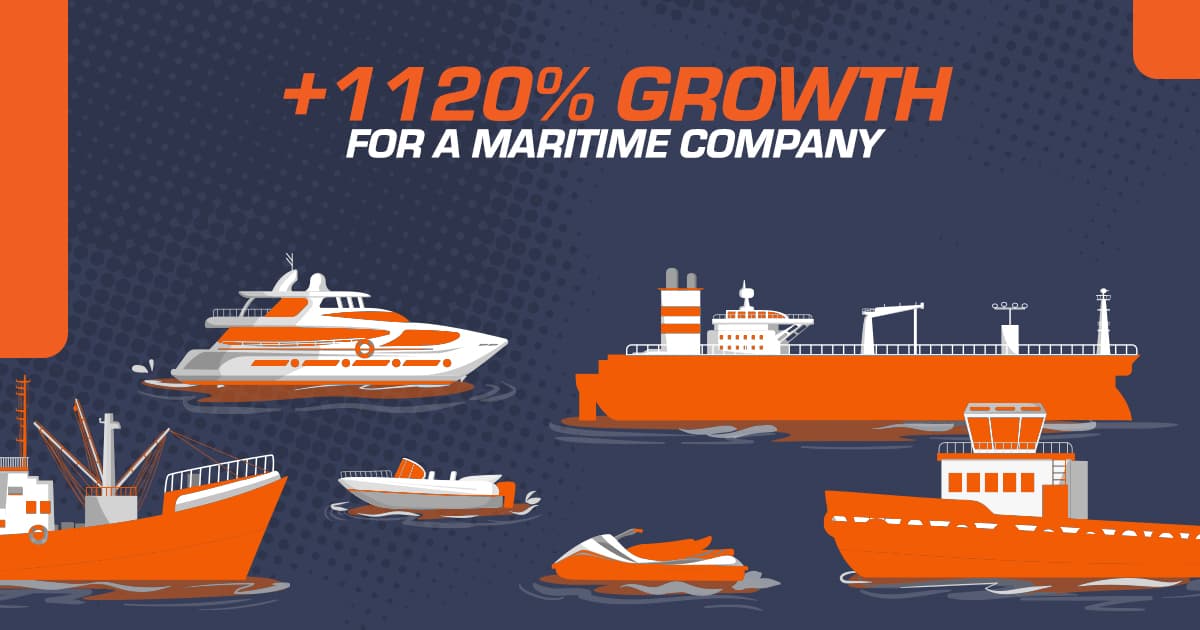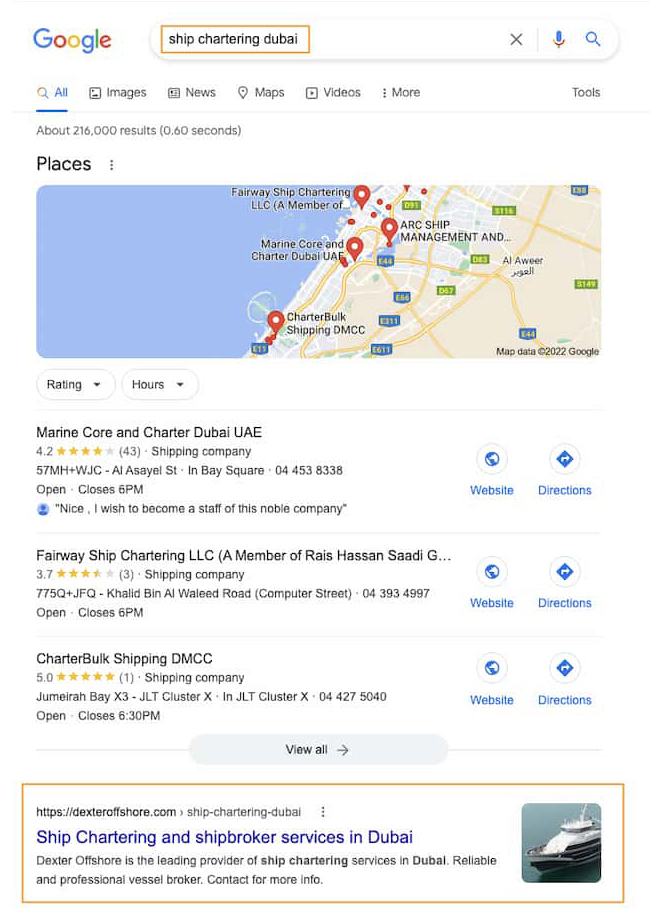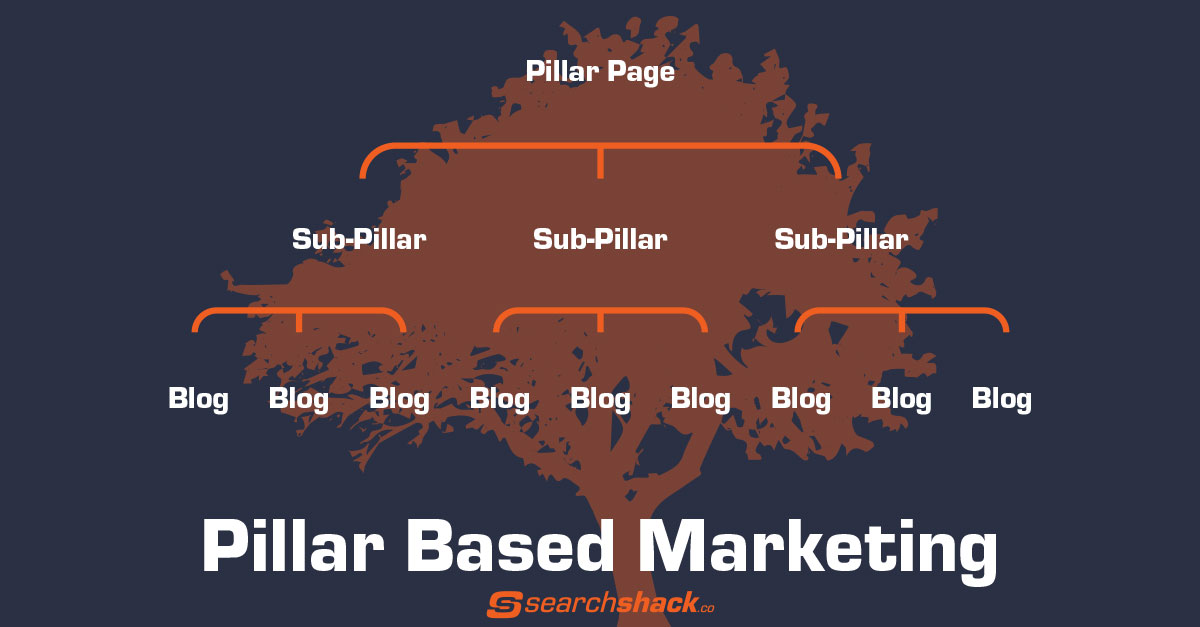
Content Creation For Maritime SEO – A Case Study
Published on October 30, 2023
We notice more and more in the Maritime world, that companies are not capitalising on search engine optimisation.
Especially for the marine industry, where the focus is more on offline marketing and less so on the digital marketing side of the business.
One such company reached out to us recently, to see if we could change this for them.
A local ship management company in Dubai were concerned about their visibility in the search engines.
After first discussing their goals and issues they faced, we identified a clear strategy and framework to set about transforming the online presence of the business.
Interested in finding out exactly what that was?
Let’s dive in…

1120% increase in impressions and 775% increase in click through to the website.
Client: Dexter Offshore.
Location: Dubai, United Arab Emirates.
Objective: Increase traffic and rank No.1
Below is the success story of how we brought huge change to one of their leading services within the business.
The Problem
Dexter Offshore have 3 main service offerings that they wanted to focus on when they engaged with Search Shack.
One of their primary sources of revenue is their ship chartering service.
They had a service page that briefly touched on the topic, but they lacked any real content.
Ranking
At the time of meeting with us, Dexter Offshore didn’t rank at all in the top 100 listings of Google for anything around the keyword of ‘ship chartering’.
The Solution
Our game plan was simple – a Growth Sprint.
Create some E.A.T (Expertise, Authoritativeness, Trustworthy) content based around the topic of ‘ship chartering’.
Using our tried and tested 3 step framework for ranking a website, we began our content growth process, which includes an in-depth keyword gap analysis and compares 5 of Dexter Offshore’s competitor websites to identify keywords and topics that were missing, that really should have been on the website if they were going to have any chance of ranking for the term ‘ship chartering’.
Using data from our Website Quality Audit from the Foundation Sprint. combined with the above keyword gap analysis, we were able to compile a list of keyword opportunities that we could then use as ‘pillars’ to base our content around.
We hand picked the most relevant topics, then we fleshed out the beginnings of a content brief.

An example of a content brief.
What’s a content brief, I hear you ask?
Well…
A content brief is basically a ‘paint-by-numbers’ document, that any decent writer can follow, to create an extremely in-depth piece of content that can be published on a website or blog, that will out perform the competition.
Packed full of data from our research and findings, the finished content brief contained important specifications, including keywords, titles, metadata, ideal slug, recommended number of images and much more.
The Finished Article
Now armed with a bullet proof content brief, we handed it over to our copywriter to work his magic.
1,600 words later and we have a finished article, based off the original research gathered at the Foundation Sprint stage.
A few final edit’s here and there from the client and then the article was published on the Dexter Offshore website.
In addition to the content that was written, we included some Schema markup in our FAQs section of the article.

Showing an example of our client ranking No.0 (being included in the Featured Snippets).
Schema markup
Also known as ‘structured data’, Schema markup allows search engines to read and understand the content on a web page.
We basically told the search engine that parts of the article were FAQs.
Why do we do this?
To rank No.0 of course!!
Yes, we can rank No.1, but Google includes Featured Snippets, which are highlighted excerpts of text that appear at the top of a Google search results page in what is known as ‘Position 0’.
Winning.

Dexter Offshore ranking No.1 for one of their target keywords.
The Results
All the client is looking to do is increase their revenue, without having to rely on ad spends with Google or social media channels.
At the time of writing, Dexter Offshore now rank on page 1 of Google for 6 of their 10 target keywords around the topic of ship chartering.
All from a well researched pieces of content.

The above image shows the traffic increase and keyword rankings from organic seo.
Conclusion
SEO isn’t complex.
We can break it down into 3 clear stages;
- Build a fast, technically sound website.
- Create killer content.
- Link building.
The above case study has just focused on the content creation side of search engine optimisation, but the other important part of seo, which really moves the needle when ranking a website, is link building.



